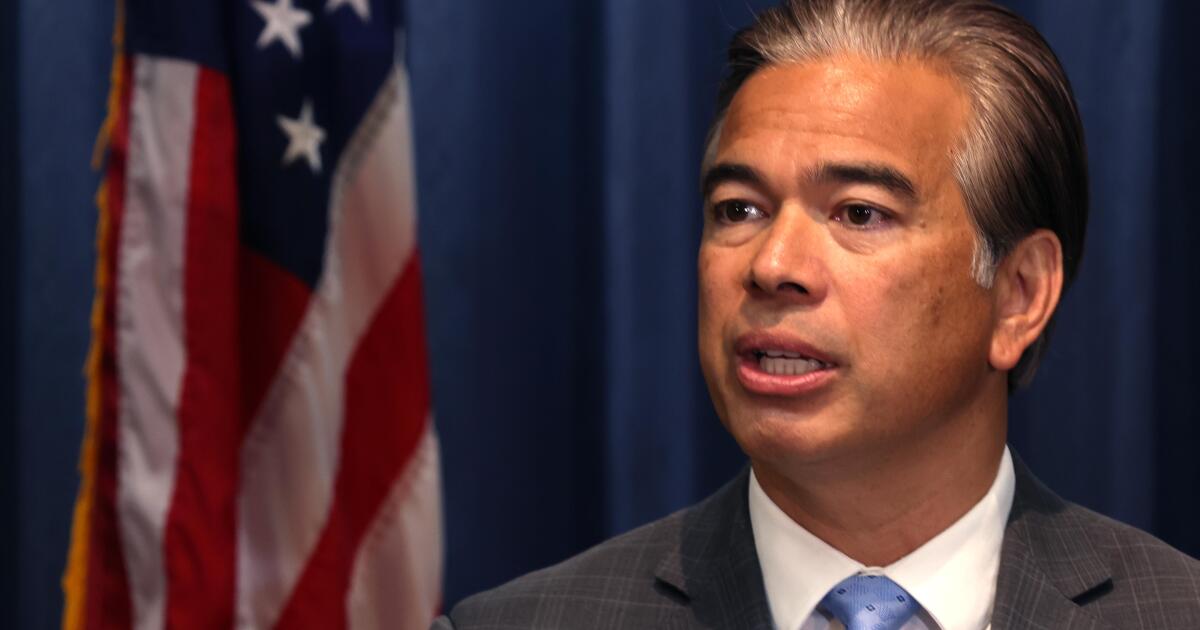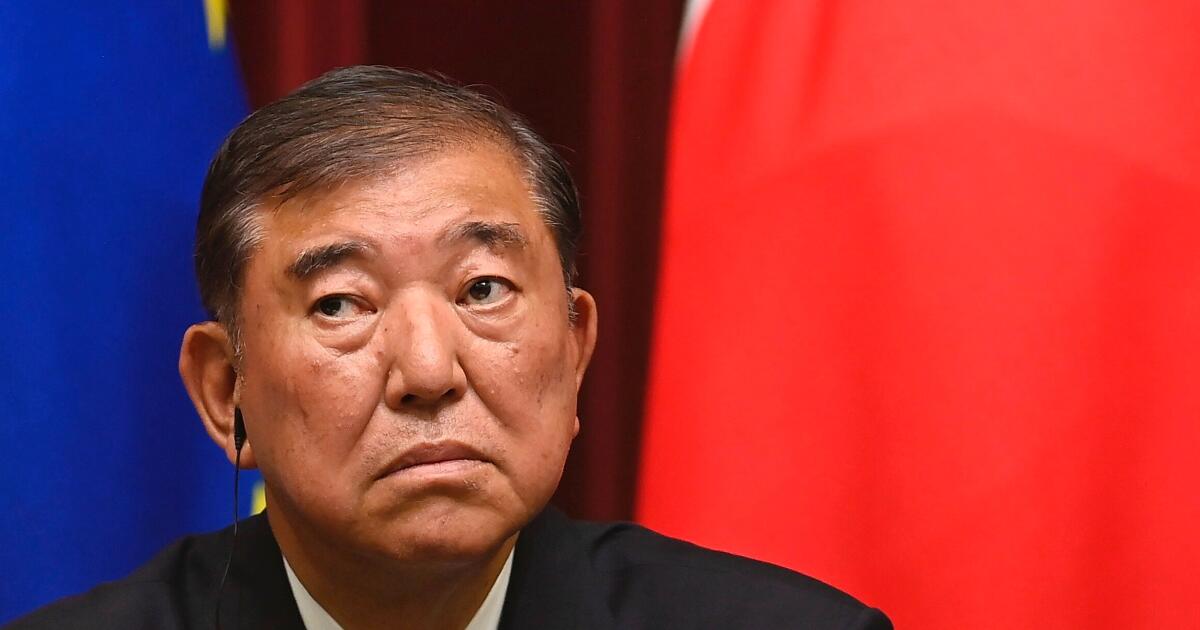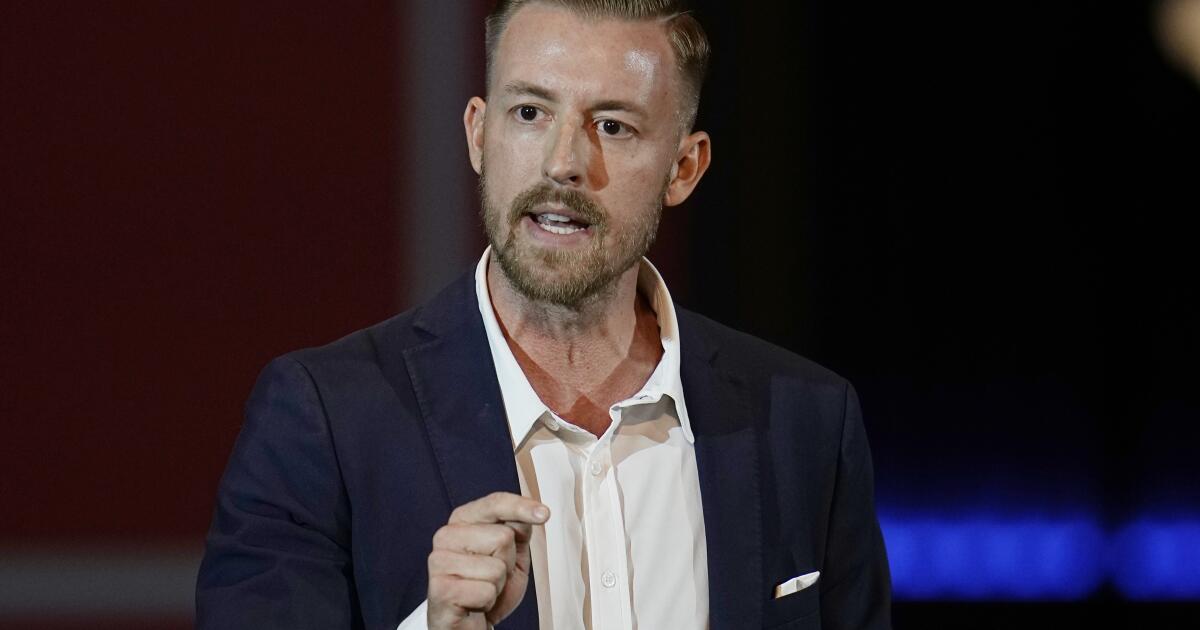Trump is trying to subvert California’s Nov. 4 election results, state attorney general says
SACRAMENTO — Atty. General Rob Bonta said Monday that he anticipates the Trump administration, which last week announced plans to use federal election monitors in California, will use false reports of voting irregularities to challenge the results of the Nov. 4 special election.
Bonta, California’s top law enforcement officer, said on a call with reporters that he is “100%” concerned about false accusations of wrongdoing at the polling places.
Bonta said it would be “naive” to assume Trump would accept the results of the Nov. 4 election given his history of lying about election outcomes, including his loss to President Biden in 2020.
The attorney general also warned that Trump’s tactics may be a preview of what the country might see in the 2026 election, when control of the U.S. House of Representatives — and the fate of Trump’s controversial political agenda — will be at stake.
“All indications, all arrows, show that this is a tee-up for something more dangerous in the 2026, midterms and maybe beyond,” Bonta said.
The U.S. Department of Justice last week announced it would send election monitors to five California counties where voters are casting ballots in the Proposition 50 election to decide whether to redraw state’s congressional boundaries.
Federal election monitors will visit sites across Southern California and in the Central Valley, in Fresno, Kern, Los Angeles, Orange and Riverside counties, the Justice Department said last week.
Gov. Gavin Newsom called the move an “intimidation tactic” aimed at suppressing support for Proposition 50 and inappropriate federal interference in a state election.
While federal monitoring is routine, particularly in federal elections, it recently has been viewed with heightened skepticism from both parties. When the Justice Department under President Biden announced monitoring in 86 jurisdictions across 27 states during last November’s presidential election, some Republican-led states balked and sought to block the effort.
Democrats have been highly suspect of the Trump administration’s plans for monitoring elections, in part because of Trump’s relentless denial of past election losses — including his own to Biden in 2020 — and his appointment of fellow election deniers to high-ranking positions in his administration, including in the Justice Department.
The California Republican Party requested the election monitors and cited several concerns about voting patterns and issues in several counties, according to a letter it sent to the Dept. of Justice.
Bonta, in his remarks Monday questioned the GOP claims, and denied the existence of any widespread fraud that would require federal election monitors. He compared the monitors to Trump’s decision to dispatch the National Guard to Democratic-led cities, despite an outcry from local politicians who said the troops were not necessary.
More broadly, Bonta told reporters that the Trump administration appears to be ready to fight the Nov. 4 results if Prop. 50 passes.
“People vote and you accept the will of the voters — that’s what democracy is. But that’s not what they’re teeing themselves up to do based on everything that we’ve seen, everything that’s been said,” said Bonta, describing Trump’s recent call on social media for Republicans to “wake up.”
Bonta also said that the state would dispatch observers — potentially from his office, the secretary of state and county registrars — to watch the federal monitors at polling places.
Early voting has already started in California, with voters deciding whether to temporarily reconfigure the state’s congressional district boundaries. The Democratic-led California Legislature placed the measure on the Nov. 4 ballot in an effort to increase their party’s numbers in the U.S. House of Representatives .
Gov. Gavin Newsom and other backers of the measure have said they generally support independent redistricting processes and will push for nonpartisan commissions nationwide, but argued that Democrats must fight back against Trump’s current efforts to have Republican states reconfigure their congressional districts to ensure the GOP retains control of Congress after the 2026 election.
Natalie Baldassarre, a spokesperson for the U.S. Dept. of Justice, declined to comment on Bonta’s remarks. Baldassarre also declined to say how many election monitors would work in California.
Federal election monitors observe polling places to ensure compliance with the federal voting rights laws, and are trained to observe and act as “flies on the wall,” said David Becker, executive director of the nonpartisan and nonprofit Center for Election Innovation and Research, in an interview last week.
“Generally, what you do is walk inside, stay off to the side, well away from where any voters are, and take some notes,” said Becker, an attorney who formerly worked in the Justice Department’s Civil Rights Division.


